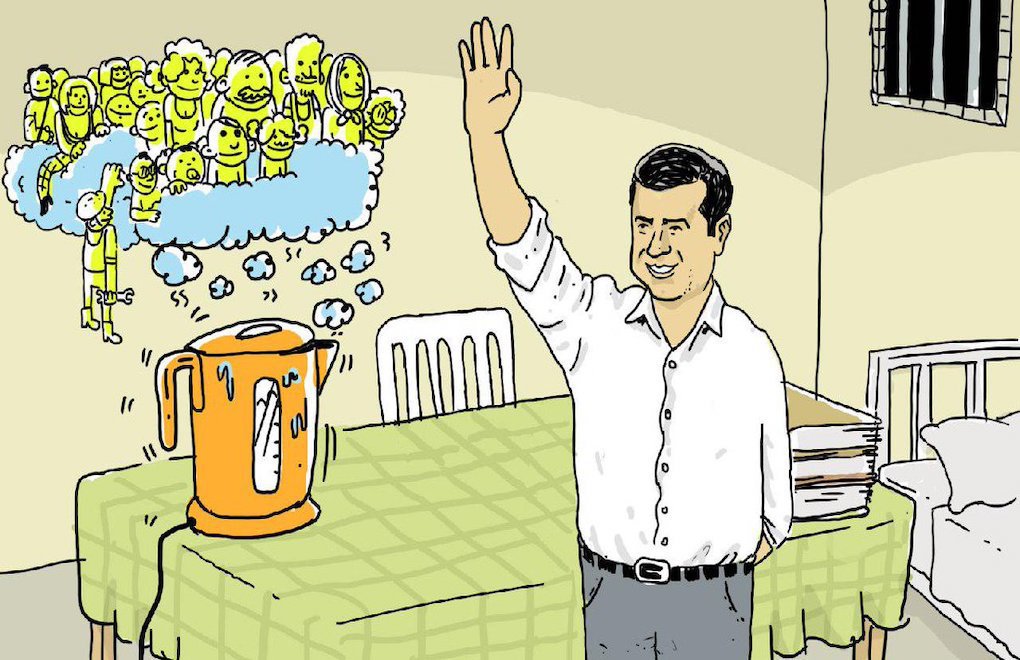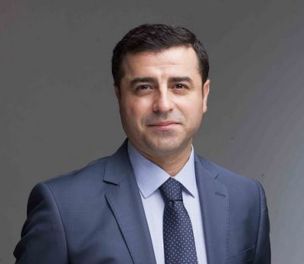Click to read the article in Turkish
Bekir Bozdağ, the Ministry of Justice reflected the intention of the government to ban the social media posts of Selahattin Demirtaş, the imprisoned ex-chairperson of the Peoples' Democratic Party (HDP).
Referring to this issue as "an important one," Bozdağ said in a press conference yesterday (January 11) that "they were working on this issue."
Is there a legal gap?
"We see many people charged with terrorism crimes continue their leadership by digital means. Thus the imprisoned person is not really imprisoned. For instance, Selahattin Demirtaş continues to lead his organization over social media and trying to intervene in politics in Türkiye," commented one correspondent in the press conference and asked, "Do you think there is a legal gap in relation to this issue?"
Bozdağ stated that the prisoners did not have access to social media. He said, "In fact, they do not have that. The convicted are visited by their lawyers. They are reflecting what they take from them, either in the lawyer visits or in the family visits, from their social media accounts."
The minister said, "They are not making a publication directly. However, what they tell their lawyers or their families is then shared outside, from their social media accounts. We see this as an important issue and we are working on it at the moment."
Bozdağ told the reporters that they were examining how the issue was dealt with in the world. He said, "We are aware that regulation is needed here. When we finish the preparations we will also check how it is regulated elsewhere in the world and we will make a decision."
Should inmates have internet access?
Although internet and social media use is banned in prisons in general throughout the world, the issue is far from being undisputed and discussed in academic and legal circles.
The question is being explored from a human rights perspective, and in relation to the question of prisoner reintegration into society.
Problematic issues involving prisoner internet access also constitute a topic of discussion, such as if the internet can be used to spread illegal material or pose threat to the victims of those convicted of charges of violence or assault.
One example is an article called "A brave new world: The problems and opportunities presented by new media technologies in prisons" by Yvonne Jewkes and Bianca C. Reisdorf from the UK.
"Currently denied access to online and social media that most of us take for granted, and unable to communicate in ways that have become 'ordinary' in the wider community, it is argued that prisoners experience profound social isolation and constitute one of the most impoverished groups in the digital age," argues the article.
Imprisonment of Demirtaş
Selahattin Demirtaş, the ex-Co-Chairperson of HDP from 2014 to 2018 and the presidential candidate of HDP in 2014 and 2018, has been imprisoned since 4 November 2016.
Despite his imprisonment, HDP fielded Demirtaş as its candidate for the 2018 presidential election, running his campaign from prison.
In a judgment given in December 2020, the European Court of Human Rights judged that, given "the timing of [Demirtaş] continued detention (coinciding with an important constitutional referendum and the presidential election)" and Turkey's "systemic trend of "gagging" dissenting voices", Demirtaş's continued pre-trial detention's political purpose had been predominant". (AEK/PE)







